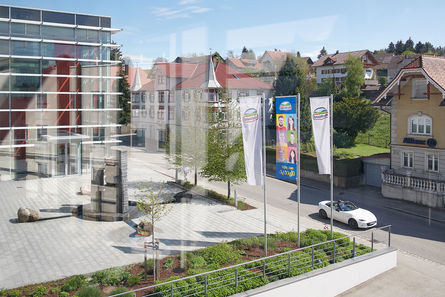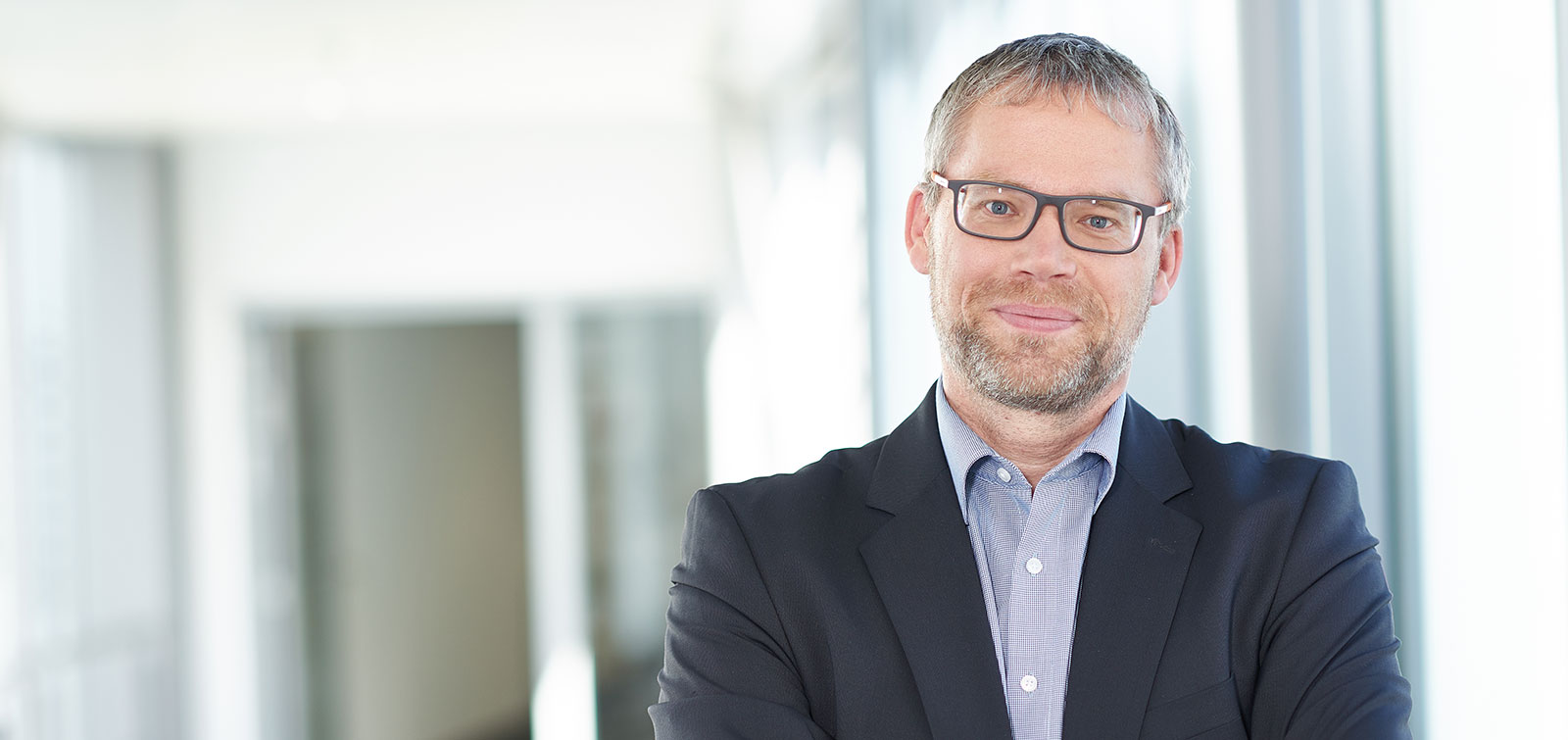Dear reader,
We want to be sincerely successful.
And we want to be successful in the right way. It’s about doing the right thing and acting responsibly. Sustainability has been important to us Hochländers for more than just a couple of years. Taking responsibility for the future of our children and grandchildren has always been a matter of course in a family business. And the fact that nature and the environment have a special significance for us is already evident from our most important raw material, milk. For some years now, we have been summarising our economic, ecological and social efforts under the term sustainability.
Why are we focussing on sustainability? There are clear connections. We know that we can only be economically successful in the long term if we also act in an ecologically and socially responsible manner. Above all we must not neglect the social sector in our efforts to become sustainable. We are saying goodbye to dogma and seeking a common view of the whole.
We talk to farmers, suppliers, customers, retailers and NGOs on an equal footing to communicate our position on sustainability issues and to find out what stakeholders expect from our company. We want to demonstrate our attitude of sustainability both internally and externally. Our aim is to promote sustainability together. This only works step by step. We want to move forward consistently one step at a time and be a pioneer in terms of sustainability.
Since the last report, we have developed our sustainability strategy and have begun to implement the first six fields of action. As already mentioned, our greatest source of leverage in terms of sustainability is also our most important raw material – the milk.
I am therefore particularly proud of the progress we have been able to achieve together with milk suppliers and trade customers. Bans on total herbicides and plastic from biogas plants in our dairy farmers‘ fields and our first cheese with the label issued by the German Animal Welfare Association are personal highlights for me. But improvements in ergonomics and occupational safety are also important steps along our path.
This all sounds very positive now. However, sustainability is not quite that simple. Sometimes we have to accept short-term disadvantages in order to achieve a positive effect in the long term. We have also suffered real setbacks. Avoiding and reducing plastics is not possible in all areas – but we are continuing to work on it.
At present, we see our greatest challenge in significantly reducing Hochland CO2emissions. In the coming years, we will focus on reducing plastics further, developing and marketing sustainable milk qualities in our products, phasing out year-round tethering by our milk producers, and promoting the health and satisfaction of our employees. We will be tackling the areas with the greatest impact first. So we are still trying to do the right thing in order to continue to be sincerely successful.

Volker Brütting, Managing Director
Beginnings and Development
Hochland’s history began in 1927, when Georg Summer and Robert Reich, who were related by marriage, founded a cheese plant to produce processed cheese. In 1942 Hochland merged with the canned cheese factory Konservenkäsefabrik Fuchs. All three company owners – Georg Summer, Robert Reich and Franz Fuchs – shared the same pioneering spirit and enthusiasm for their joint company. Over the decades, Hochland kept growing, even beyond national borders.
Company Group
Hochland SE is still a family business to this day, headquartered in Heimenkirch in Allgäu. Since its beginnings, the company has concentrated on producing, refining and distributing cheese. With more than 5,200 employees Hochland SE generated sales of around 1.59 billion euros in 2019. This makes the company group one of the largest pro ducers and refiners of cheese in Europe. Nationally and internationally, the Hochland Group serves all major cheese segments. In addition to the German plants, there are other decentralised production sites for cheese in France, Spain, Poland, Romania, Russia and the USA. Cheese from Hochland is sold in around 30 countries. The subsidiary E.V.A. GmbH also develops, produces and distributes vegetable cheese alternatives. The Hochland Group also includes the engineering company Hochland Natec. It specialises in the construction of machines for the production, processing and packaging of processed cheese.
Hochland Deutschland GmbH

Hochland Deutschland GmbH was founded in 2007 as a subsidiary of the former Hochland AG – since 2010 Hochland SE. Hochland Deutschland is responsible for the production of all products that concern the German brand business as well as the international areas of business Food Service and Private Label. Distribution for the Private Label sector is handled by an independent company. Unless expressly stated otherwise, this Sustainability Report always refers to Hochland Deutschland GmbH. More than 1,700 people are employed at the sites in Heimenkirch, Allgäu and Schongau, Upper Bavaria. In 2019, Hochland Deutschland had a total sales volume of around 172,000 tons, an increase of 3.5 percent over the previous year. The company distributes well-known cheese brands such as Hochland, Almette, Valbrie, Patros, Grünländer and Gervais. The portfolio includes processed cheese, hard and semi-hard cheese, cream cheese, cheese in brine, cottage cheese and herb quark cheese. The Heimenkirch site is not a milkprocessing company in the classic sense. The raw materials used here are various types of cheese, which are processed and refined, primarily into processed cheese but also hard and semi-hard cheese. The plant in Schongau is one of the most important production facilities for white cheese and cream cheese in Europe. Hochland Deutschland is represented in the food retail trade with its branded products, but it also manufactures products for the retail trade’s own brands. In addition, the company supplies the food industry and catering sector with special ly developed prod ucts in all desired forms.
